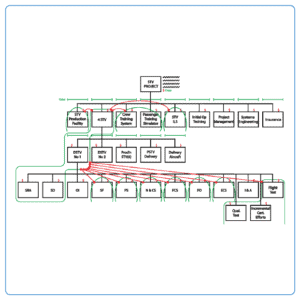Home » Training » Systems Engineering Training Courses » Systems Engineering Management
Systems Engineering Management
A course presented over 5 days by Randall Iliff, Clive Tudge, Alwyn Smit, Robert Halligan or Michael Gainford.
- 5 Days
- Public delivery (In-person or online)
- Corporate delivery (In-person or online)
- Certificate upon completion
- Professional Development Credits
Get Started Today
View the schedule and register your interest.
Let's Talk
Whether you have a question or are looking to find out more about our training options then please get in touch with us below.
- Summary & Schedule
- Full Schedule
- Course Overview
- Course Outline
- FAQ
 Over many years, experience has shown that projects have difficulty in delivering solutions to stakeholders on time, on budget and satisfying needs. The greater the problem complexity, solution complexity, and diversity of stakeholders, the greater the challenge has proven to be.
Over many years, experience has shown that projects have difficulty in delivering solutions to stakeholders on time, on budget and satisfying needs. The greater the problem complexity, solution complexity, and diversity of stakeholders, the greater the challenge has proven to be.
This 5-day Systems Engineering Management training course provides in-depth coverage of how to manage engineering projects to maximize project success, within the project’s given constraints. The course establishes sound principles and provides effective methods to successfully manage projects and for getting the best out of people, individually and in teams.
Great projects come about from great leaders bringing together people having a mix of knowledge, skills, and attitudes well-suited to the task. The leader creates a climate of trust and mutual accountability in pursuit of a shared vision. The leader also manages well, with special concern in engineering projects for managing requirements (scope), complexity, interfaces, configuration, knowledge, data and risk.
This Systems Engineering Management course will most benefit people who seek substantial knowledge and understanding of how to best go about managing technical projects, even more so those projects involving complex engineering.
- This course may be credited toward the maintenance of the INCOSE Certified Systems Engineering Professional (CSEP) certification for 40 Professional Development Units and PDUs may be claimed for PMI’s family of certifications, including PMP
- This course qualifies for Engineers Australia and Engineering New Zealand (IPENZ) CPD purposes (40 hours)
- This course is accredited by ECSA South Africa for CPD 5 points (ref. INCOSE 23/004)
- This course may qualify for CPD, CLP and similar purposes with other organizations (40 instructor hours)
- This course may be credited toward the maintenance of the Project Management Institute (PMI) certifications. Suggested PMI Talent Triangle® PDU allocation:
- Ways of Working – 28
- Power Skills – 8
- Business Acumen – 4
Upcoming Courses
Register and pay 30 days prior to the course commencement date to receive a 10% early bird discount. Or register a group of 3+ for a 10% group discount. Available for corporate training worldwide.
(Exclusive to South America)
(Exclusive to South America)
(Exclusive to South Africa)
(Exclusive to South Africa)
Upcoming Courses
Register and pay 30 days prior to the course commencement date to receive a 10% early bird discount. Or register a group of 3+ for a 10% group discount. Available for corporate training worldwide.
(Exclusive to South America)
(Exclusive to South America)
(Exclusive to South Africa)
(Exclusive to South Africa)
Key Learning Objectives
At the conclusion of this course, participants are expected to have learned:
- the relationships of systems engineering management to management in general, project management, engineering management, and systems engineering;
- how to select the most appropriate style of development, based on observable or predictable parameters (from Waterfall, Incremental, Evolutionary, and Spiral);
- how critically important the concept of concurrent (simultaneous) engineering is, and how to implement CE in terms of both organization and processes;
- how to plan an engineering activity in terms of engineering organization and engineering tasks;
- how to effectively record and communicate that plan;
- how to be aware of management issues and techniques specific to engineering, including configuration management, requirements management, interface management, and design management, with an overlay of risk management throughout; and
- the trade-off between engineering overhead and risk due to design complexity.
Training Methods and Materials
The training is delivered using a balanced combination of video, presentations, workshops and discussion sessions. The workshops and discussions are focused on putting into practice the techniques covered in the presentations and the lessons to be learned from the videos.
The workshop sessions are used extensively to reinforce learning and to contribute to the development of understanding.
You will be provided with:
- comprehensive Systems Engineering Management course notes containing presentation material
- numerous supplementary descriptions, checklists, forms and charts which you can put to use immediately
- complimentary access to PPI’s evolving Systems Engineering Goldmine
Some Key Questions
- What is the difference between systems engineering management and engineering management in general?
- Why is following the PMBOK® not enough?
- What is systems engineering and how is it relevant?
- What are the Skills, Knowledge and Attitudes (SKAs) conducive to success in conducting engineering projects?
- What is the role of the Engineering Manager/Team Leader in ensuring these SKAs are in place?
- How are system life cycle models relevant?
- What is the relevance of Waterfall development, Incremental development, Evolutionary development, Agile, Spiral development, Lean, simultaneous/concurrent engineering?
- What is the role of Project (Work) Breakdown Structure PBS/WBS in successful projects?
- How can a PBS/WBS best be developed?
- How does PBS/WBS relate to cost and schedule estimating and control?
- What is EVM and how does this relate to systems engineering management?
- What are the ingredients of risk? How may risk be controlled?
- Where does opportunity figure?
- How does PBS/WBS relate to risk analysis and risk management?
- Why are requirements management, configuration management, interface management and data management fundamental to success?
- How may they be accomplished?
- How do we know that we have problems before it is too late to solve them?
- What is the role of leadership in conducting successful engineering projects?
- Does a relationship exist between personality types and performance in different project roles?
Who Should Attend this Course?
This Systems Engineering Management course is designed for individuals who plan, manage, control, specify or support the development or acquisition of products, including software products, or systems. The course will be of particular value to programme managers, project sponsors, project managers and their planning advisers, project chief engineers, engineering managers, team leaders, system engineers, software systems engineers, engineers of all other types, stakeholders in the product being developed such as users and planners, and those responsible for the development of policy and processes in the fields of management, development, acquisition, and supply.
The course will also be of value to anyone who interfaces with a project team and who seeks an understanding of how projects are managed, e.g., members of functional units that interface with a project team such as Quality Assurance, Configuration Management, Human Resources, Safety, Training, Contracts, Finance, etc.
To summarize, the course will be of value to anyone who may take on a role within, or in relation to, a project team.
Course Availability
This course is available worldwide for public and on-site delivery (i.e. at client-provided facilities).
1. The Value Proposition for World Class Systems Engineering & Management
The systems engineering management role must understand the value of systems engineering in order to make sound decisions regarding its application. The systems engineering management role will also often need to “sell” systems engineering to other stakeholders in the engineering, such as project management, customers and users. The terms management, project management, engineering management and systems engineering management are all defined in early chapters of the course. These definitions set the scope of systems engineering management as an activity, regardless of who does it.
2. Introduction to Systems Engineering
- the concept of system
- systems thinking
- system life cycle processes
- system life cycle models
- systems-of-systems engineering
- key features of excellence in systems engineering
- key features of excellence in management
- systems engineering principles and concepts
- overall systems engineering process models
- concurrent/simultaneous engineering
- V model, Wedge model, Double-V model, Multiple V model
- understanding the inputs and the outputs
- defining the problem – requirements analysis
- designing the physical solution
- describing the logical solution – functional and state-based design
- effectiveness evaluation and decision-making
- requirements specification writing
- system integration
- verification
- validation
- specialty engineering
- the role of cognitive systems engineering
- workshop: principles of the engineering of systems
- Electronic Industries Alliance (EIA)/Interim Standard (IS) 632, EIA 632, Institution of Electrical and Electronic Engineers (IEEE) 1220, International Standardisation Organisation (ISO)/International Electrotechnical Commission (IEC) 15288, Capability Marurity Model Integration (CMMI) systems engineering standards
- key engineering artifacts and their roles
- systems engineering plans
- operational concept descriptions
- system requirements specifications
- software requirements specifications
- interface requirements specifications
- verification requirements specifications
- architectural design descriptions
- detailed design descriptions
- test/verification procedures
- records of test/verification results
- validation plans/procedures
- records of validation results
- other potential artifacts
- integrated logistics support plan
- feasibility study reports
- trade-off study reports
- simulation reports
- specification tree
- Model-Based Systems Engineering (MBSE) – languages & methods
- systems engineering in a research environment
- software support to systems engineering
- hardware support to systems engineering
3. Relationship of Systems Engineering Management to Other Forms of Management
3.1 Introduction to Management
- the role of management
- basic concepts of management in general
- “The Fifth Discipline” – systems thinking
- value stream mapping
3.2 Introduction to Project Management
- relationship to management in general
- the role of project management
- basic concepts of project management
- the PMBOK®
- concepts of lean
- concepts of agile
- project management certifications
3.3 Introduction to Engineering Management
- relationship to project management
- the role of engineering management
- engineering the engineering system
4. Introduction to Systems Engineering Management
- relationship to engineering management
- the role of systems engineering management
- systems engineering within three different business models
- internal project
- development under contract
- product development in anticipation of sales
- tenets of systems engineering management
- systems engineering management and Projects IN Controlled Environments (PRINCE2 TM)
- systems engineering management and Logistics Support Analysis (LSA)
- systems engineering management and contract management
- managing complexity
- managing the development of safety-critical systems
- workshop: principles in the management of the engineering of systems
5. Planning the Engineering Effort
- styles of development and relationship to planning
- waterfall, incremental, evolutionary, agile, lean, spiral
- concurrent/simultaneous engineering/Integrated Product and process Development (IPPD)
- engineering for modifications
- incorporation of risk and opportunity into planning
- major planning artifacts
- Project (work) Breakdown Structure (PBS/WBS)
- types of PBS
- why the PBS is a foundation of effective engineering management
- rules in preparing a PBS
- relationship of the PBS to cost accounts
- relationship of the PBS to work packages
- PBS (WBS) development pitfalls and pointers
- Project (work) Breakdown Structure (PBS/WBS)
- workshop: developing a PBS/WBS
- systems engineering plans
- scoping Systems Engineering (SE) – the Systems Engineering Plan (SEP), Systems Engineering Management Plan (SEMP)
- why prepare a SEP?
- how a SEP may relate to other plans
- content of the SEP
- how the SEP relates to ISO 9001
- pitfalls in preparing a SEP
- stage plans
- product development plans
- specialty engineering plans, e.g., safety, reliability, producibility
- functional plans, e.g., test plans, system integration plans
- systems engineering plans
- costing the engineering effort
- cost metrics
- cost models, e.g., Constructive Systems Engineering Cost Model (COSYSMO), PRICE, SEER
- scheduling the engineering effort
- event-based planning
- workshop: SE master schedule
- sequencing activities
- concepts of critical path, and critical path index
- decision analysis and value/cost engineering
- workshop: decision-making in engineering planning
- workshop: constructing an Expected Monetary Value (EMV) decision tree
- using verification and validation
- verification and validation terms defined
- verification requirements
- methods of verification
- verification design
- methods of validation
- technical reviews for verification, validation, assessment and control
- requirements reviews
- principles of design review
- Architectural Design Review (ADR)
- Detail Design Review (DDR)
- functional reviews
- system-wide design reviews
- Test Readiness Review (TRR)
- requirements satisfaction audits (FCAs)
- design description (Build State-Build Standard [BS-BS]) audits (Physical Configuration Audits [PCAs])
- technical reviews and incremental builds
- administration of technical reviews
- customer involvement in technical reviews
- pitfalls in conducting technical reviews
- planning pitfalls and pointers
6. Organizing & Conducting the Engineering Effort – Team Processes
- knowledge, skills and attitudes conductive to high performance in the nine systems engineering process areas
- alternative organizational structures – functional, matrix, project
- types of teams: teams in general, product development teams, Skunk Works™, process cells, tiger teams, red teams, Interface Control Working Groups (ICWGs), Integrated Product Teams (IPTs).
- IPT types and related issues
- characteristics and products of an IPT
- inside an IPT
- when to use IPTs
- workshop: project structure & IPT membership
- team key success factors
- achieving customer focus
- challenges to IPT effectiveness
- IPT formation and start-up
- IPTs and the PRINCE2TM project management methodology
- IPTs and data management, configuration management
- types of IPT
- team size
- using product cells
- using functional cells
- keys to success
- staffing the engineering organization
- relationships to customer and supplier organizations
- organizational pitfalls and pointers
7. Managing & Leading the Engineering Team
- Video: Teamwork The Meerkat Way
- teamwork and teams
- team performance
- team development
- team characteristics
- team problems
- leading and coaching
- interpersonal skills
- Video: 5 Dysfunctions of Teams – Patrick Lencioni
- The Pentagon Game – An exercise in team behavior
- difference between management and leadership
- Video: The 5 levels of leadership – John Maxwell
- team processes and skills
- innovation
- problem-solving
- decision-making
- implementation
- communication
- motivation
- emotional intelligence
- Maslow’s hierarchy of needs
- personality profiling
- Video: The Business Case for Strengths – Marcus Buckingham
8. Requirements Management
- selecting requirements analysis processes
- requirements traceability in requirements analysis
- requirements traceability in design
- traceability from goals
- integration with test or verification traceability – Verification Cross-Reference Index (VCRI)/Verification
Cross-Reference Matrix (VCRM)/Requirements Test and Evaluation Matrix (RTEM) etc. - software tools supporting requirements management
- pitfalls and pointers in requirements management
9. Design Management
- selecting design processes
- managing for innovation
- managing design complexity
- avoiding under-engineering
- avoiding over-engineering
- design traceability
- pitfalls and pointers in design management
10. Configuration Management
- what is configuration?
- the concept and types of baseline
- CM standards – EIA, ISO, etc.
- the four fundamental CM activities
- examples of CM implementation
- pitfalls and pointers in configuration management
11. Interface Management
- objectives of interface management
- interface requirements
- interface design
- ensuring interface consistency
- managing evolution of interfaces in complex systems
- organizational aspects of interface management
- pitfalls and pointers in interface management
12. Management of Engineering Data
- objectives of data management
- data modeling
- tool data exchange
- data management vs configuration management
- pitfalls and pointers in data management
13. Knowledge Management
- objectives of knowledge management
- protection of new knowledge
- lessons learned
- communication of new knowledge
- use of external knowledge – intellectual property
- pitfalls and pointers in knowledge management
14. Engineering Specialty Integration (ESI)
- what makes an engineering specialty special?
- common engineering specialties
- a general approach to ESI
- organizational issues of ESI
- pitfalls & pointers in engineering specialty integration
15. Managing System Integration
- drivers to trouble-free system integration
- system integration planning
- role of integration testing
- responsibility of designers
- diagnosing the causes of problems
- incremental system integration
- integration test beds
- metrics for the balance of work in a system integration phase
- pitfalls and pointers in managing system integration
- workshop: developing an integration plan
16. Managing Verification & Validation
- project-wide V&V
- requirements verification methods
- design verification methods
- system/subsystem verification requirements
- system/subsystem verification methods
- system/subsystem verification design
- system/subsystem verification traceability
- pitfalls and pointers in managing V&V
17. Managing the Development of Software-Intensive Systems
- special issues for software-intensive systems
- performance of alternative software development methodologies
18. Engineering Cost & Time Management
- tracking systems engineering costs performance – EVM
- controlling systems engineering costs
- pitfalls and pointers in engineering cost management
- tracking time performance
- controlling systems engineering schedule
- pitfalls and pointers in time management
19. Systems Engineering Performance Management
- technical performance measurement
- technical progress meetings
- earned value management
- integrated performance measurement
- Six-Sigma revisited
- pitfalls and pointers in performance management
20. Risk & Opportunity Management
- the nature of risk
- components of risk
- the nature of opportunity
- the five key activities of risk management
- risk due to requirements
- risk due to technology
- risk due to complexity
- integrating consideration of risk and opportunity into every aspect of systems engineering
- pitfalls and pointers in risk and opportunity management
21. Stakeholder Management
- determining stakeholder interests
- dealing with conflicting interests
- ensuring stakeholders have influence
- keeping stakeholders informed
- reporting to higher-level management
22. Other Techniques for Controlling Outcomes
- qualification
- integrated software support to product life cycle management
23. Release & Deployment Management
- release management
- deployment management
- post-implementation reviews
24. Project Closure
- archiving of engineering data
- maintenance of engineering data
25. Continuous Performance Improvement
- lessons learned
- IS09000 Quality Management System
- Six-Sigma driving improvement
- CMMI
- pitfalls and pointers in performance improvement
26. Professional Societies & Systems Engineering Education
- International Council on Systems Engineering (INCOSE)
- International Institute of Business Analysis (IIBA)
- national systems engineering societies
- other societies with formal systems engineering interest areas
- systems engineering in undergraduate education
- systems engineering in postgraduate education
- systems engineering certifications
- internal systems engineering education programs
27. In Closing
Q. What is the difference between PPI’s Systems Engineering Management course and PPI’s Systems Engineering course?
A. The Systems Engineering Management course is 15% about doing systems engineering (in overview) and 85% about managing the systems engineering. The Systems Engineering course is the opposite – 90% about doing systems engineering (in depth) and 10% about managing the engineering.
Q. How well does PPI’s Systems Engineering Management training cover aspects of CMMI?
A. The Systems Engineering Management 5-day course briefly overviews CMMI. The coverage is mainly overview, because the correlation coefficients between CMMI practices and project performance (cost, schedule and quality) average out at only +0.3. The average is somewhat higher for the complex projects. These figures tell us that CMMI is generally in the right direction, but that there is a lot more to achieving high performance in engineering projects than is represented in CMMI.
The reasons for the only moderate correlations could be that:
• systems engineering practices are not always beneficial; or
• CMMI is substantially less that an optimum representation of systems engineering practices (I believe this to be the case); or
• other factors dominate over systems engineering practices in achieving high project performance.
We are sure that CMMI is of value, the data proves that, and will continue to evolve and improve.
If the CMMI correlation coefficients were close to 1, PPI’s training in Systems Engineering would align very closely with CMMI. Until this is the case, PPI will continue to maintain broad alignment, but teach what actually works best, where there is a difference!
Interestingly, CMMI is least effective in the area of systems engineering management; two of the correlation coefficients are negative!
Reference: “A Survey of Systems Engineering Effectiveness”, CMU/SEI-2008-SR-034, December 2008
Q. Do you offer tailoring of this course?
Yes. All courses are tailored informally verbally in delivery by selecting, where possible, examples matched to the domains of interest to the class. We can also work with you to design a formally customized curriculum for the development of your people. We have done so for many client companies, and we would love to work with you to this end. We always suggest that a client takes the corresponding standard course prior to any customization. For systems engineering, this is because systems engineering is the problem-independent and solution technology-independent principles and supporting methods for the engineering of systems, based on systems thinking. So the objectives of customization need to be very clear and focused on adding further value. In practice, customization, if performed, usually becomes the replacement of examples and possibly the main workshop system with domain-specific equivalents. Substitution of the workshop system usually involves substantial redevelopment of courseware. Out of necessity, formal tailoring of courseware is performed on a fee basis.
Featured Course Reviews

I would like to extend my gratitude to Michael Gainford for his outstanding efforts in delivering the course. It is with great enthusiasm that I look forward to applying the theoretical concepts and strategies learned during the course in real-world scenarios.
Abdullah Sowedan, Saudi Arabia

I am truly grateful for the exceptional teaching of PPI’s Systems Engineering Management course by Mr. Pat Byrne. I highly recommend this course to anyone looking to expand their knowledge in this field. The Systems Engineering Management course conveyed complex concepts in a clear and concise manner, enriching my understanding of the subject.
Abdulaziz Alasows, Saudi Arabia
Senior Systems Engineer, Saudi Arabian Military Industries

A well-communicated and clear presentation. The linking of theory to practical examples and the workshops was excellent. I was surprised by how smoothly the course was conducted via Zoom. Well done Clive!
Participant, Australia
BHP

Participant, Australia
BHP

Participant, USA
Raytheon Technical Services

Participant, USA
JDS Uniphase Corporation

Participant, USA
JT3 LLC

Participant, USA
L-3 Communications Cincinnati Electronics
More Courses For You
Engineering Successful Infrastructure Systems
Improve infrastructure projects
Integrated Product Teams
Create high performance teams
Interface Engineering and Management
Avoid interface problems
Managing Technical Projects
Successful technical management
Medical Device Risk Management
Achieve ISO 14971 compliance
Project Risk and Opportunity Management
Managing risk & opportunity
Software Requirements Analysis & Specification Writing
Develop the right software
Systems Engineering Management
Achieve SE & Program/Project Management alignment
